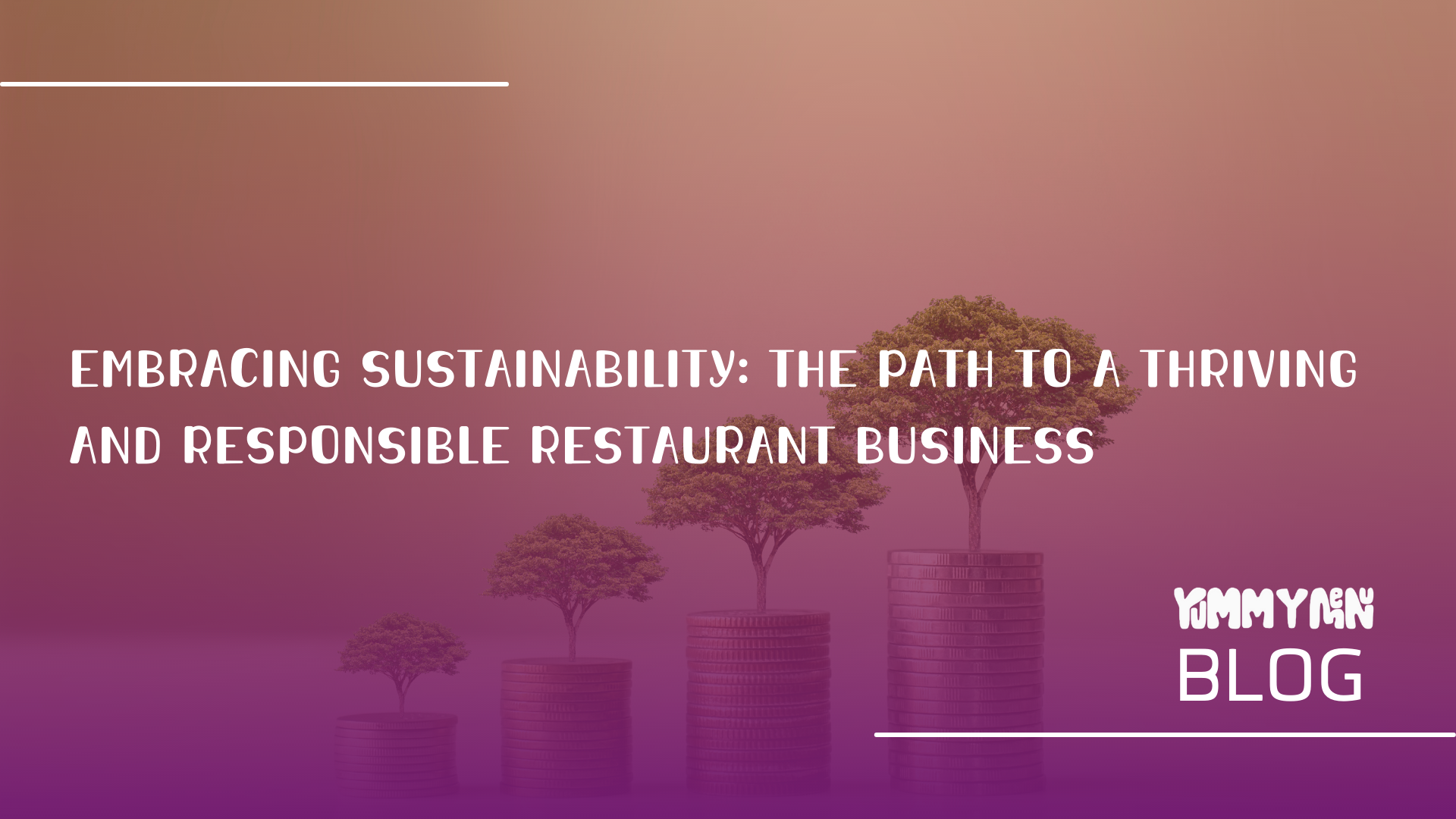
Embracing Sustainability: The Path to a Thriving and Responsible Restaurant Business
In recent years, the concept of sustainability has gained significant traction across various industries, and the restaurant business is no exception. As consumer preferences shift towards more eco-conscious choices, restaurateurs are realizing the importance of adopting sustainable practices to not only reduce their environmental impact but also enhance their business reputation and long-term profitability. A sustainable restaurant business goes beyond offering delectable dishes; it aims to minimize waste, conserve resources, support local communities, and promote a greener future. In this article, we will explore the key elements of a sustainable restaurant business and the benefits it brings.
Mindful Ingredient Sourcing:
One of the fundamental pillars of a sustainable restaurant is the conscious selection of ingredients. This involves partnering with local farmers and suppliers who prioritize sustainable farming practices, organic produce, and fair-trade options. By sourcing locally, restaurants can reduce their carbon footprint by minimizing transportation emissions, support local economies, and ensure fresher ingredients for their dishes.
Waste Reduction and Recycling:
To combat the significant issue of food waste, sustainable restaurants adopt proactive measures to reduce waste at every stage of their operations. Implementing portion control, composting food scraps, and donating excess food to local shelters are effective strategies. Additionally, restaurants can prioritize eco-friendly packaging and implement recycling programs for paper, plastic, glass, and metal waste. By adopting these practices, a sustainable restaurant minimizes its environmental impact and contributes to a circular economy.
Energy Efficiency:
A sustainable restaurant embraces energy-efficient technologies to reduce energy consumption and lower operational costs. This includes installing LED lighting, energy-efficient appliances, and properly maintaining HVAC systems. Utilizing natural light whenever possible and implementing timers or sensors for lighting and ventilation can also lead to substantial energy savings. By optimizing energy usage, a restaurant not only reduces its carbon footprint but also saves on utility bills, resulting in long-term financial benefits.
Water Conservation:
Water is a precious resource, and sustainable restaurants strive to minimize water wastage through various measures. Installing low-flow faucets and toilets, fixing leaks promptly, and utilizing water-efficient dishwashing equipment are effective steps. Moreover, restaurants can educate their staff about water conservation practices, such as not letting taps run unnecessarily and only serving water upon request. By actively conserving water, restaurants demonstrate their commitment to sustainability and contribute to the preservation of this vital resource.
Supporting Local Communities:
Sustainability extends beyond environmental practices; it encompasses social responsibility as well. A sustainable restaurant actively engages with its local community by supporting nearby farmers, artisans, and businesses. By sourcing ingredients locally, restaurants stimulate the local economy and foster community connections. Engaging in charitable initiatives, sponsoring local events, or collaborating with nonprofits further strengthens the restaurant's bond with the community, generating goodwill and loyalty among customers.
In a world where environmental concerns are at the forefront of public consciousness, embracing sustainability has become essential for restaurant businesses. By adopting sustainable practices such as mindful ingredient sourcing, waste reduction, energy efficiency, water conservation, and community support, restaurants can thrive both ethically and financially. Not only do these practices reduce the ecological footprint of the establishment, but they also attract a growing base of environmentally conscious customers. Embracing sustainability in the restaurant business is not just a trend but a necessary step towards creating a greener, more responsible future.
